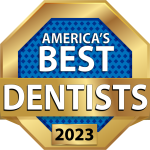Sleep apnea is a common sleep disorder that disrupts normal breathing patterns during sleep, leading to frequent pauses in breathing and inadequate oxygen intake. Fortunately, there is a solution to manage this condition: the sleep apnea machine, also known as a Continuous Positive Airway Pressure (CPAP) machine. In this article, we will explore what a sleep apnea machine is, how it works, and why it is essential for individuals with sleep apnea.
A sleep apnea machine is a medical device designed to assist individuals with sleep apnea in maintaining open and unobstructed airways during sleep. It delivers a constant flow of air pressure through a mask worn over the nose or mouth. This continuous positive airway pressure helps keep the airways open, preventing pauses in breathing and promoting uninterrupted sleep.
The machine draws in ambient air and delivers it at a prescribed pressure level determined through a sleep study or consultation with a sleep specialist. The pressurized air is then delivered through a mask, creating a seal to ensure the air reaches the airways effectively. Throughout the night, the sleep apnea machine provides a continuous flow of pressurized air, splinting the airways open and reducing the collapse of soft tissues.
A sleep apnea machine is beneficial for individuals with sleep apnea for several reasons. Firstly, it improves sleep quality by reducing apnea episodes and promoting uninterrupted sleep. This leads to increased restfulness and overall better sleep. Secondly, it enhances daytime alertness by alleviating excessive daytime sleepiness and fatigue caused by disrupted sleep patterns. Individuals using the machine often feel more alert, energized, and productive during the day.
Using a sleep apnea machine also brings important health benefits. Sleep apnea is associated with various health risks, including cardiovascular problems, high blood pressure, and an increased risk of stroke. By ensuring optimal oxygenation during sleep, the machine helps mitigate these risks and improves overall cardiovascular health.
Another advantage of using a sleep apnea machine is the reduction or elimination of snoring. Snoring is a common symptom of sleep apnea, and the continuous positive airway pressure provided by the machine helps alleviate this issue. Both the individual using the machine and their bed partner can benefit from a quieter sleep environment.
Lastly, a sleep apnea machine serves as a long-term health management tool. Sleep apnea is a chronic condition that requires ongoing management. By using a sleep apnea machine as prescribed by a healthcare professional, individuals can maintain control over their sleep apnea, prevent further complications, and ensure long-term health management.
In conclusion, a sleep apnea machine, such as a CPAP device, plays a crucial role in managing sleep apnea. By delivering continuous positive airway pressure, these machines help keep the airways open, promote uninterrupted breathing, and improve sleep quality. If you or a loved one experience symptoms of sleep apnea, it is essential to consult with a healthcare professional or sleep specialist who can provide a thorough evaluation and determine the most appropriate treatment plan, which may include the use of a sleep apnea machine.



